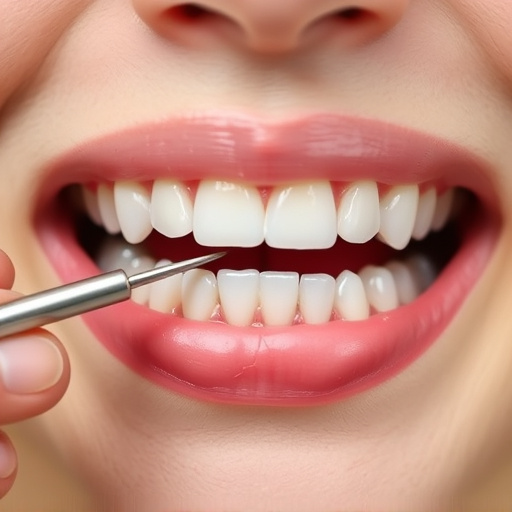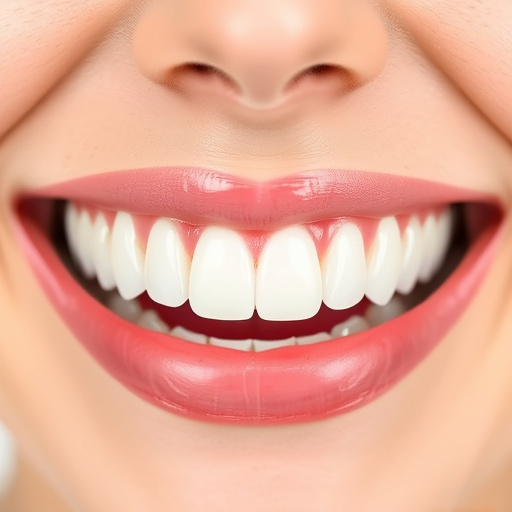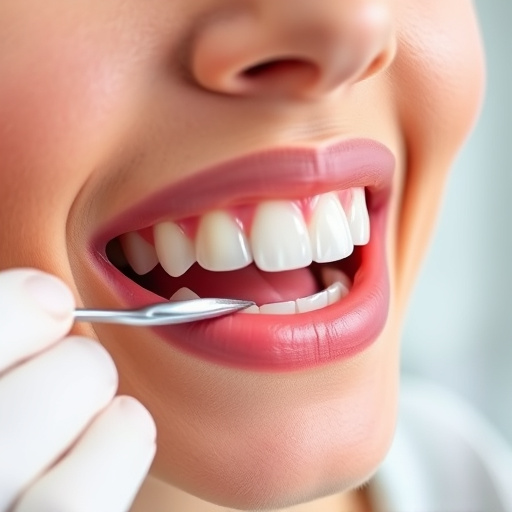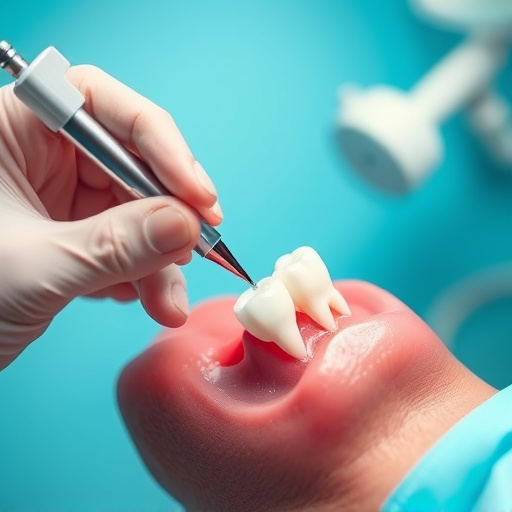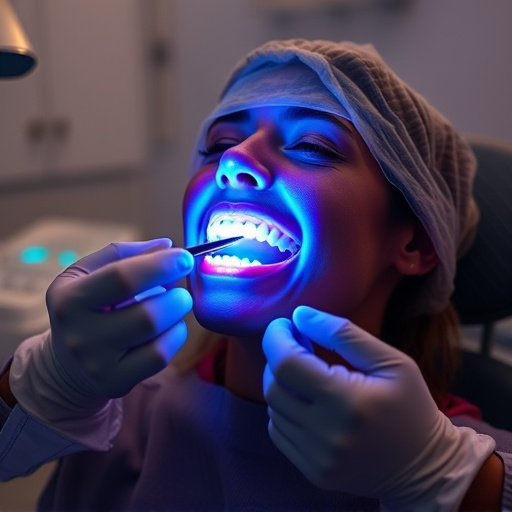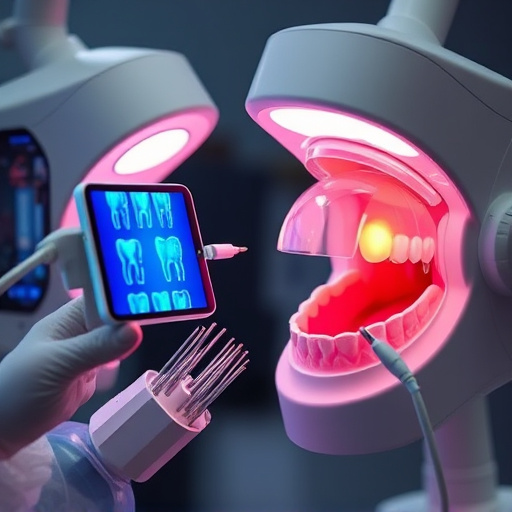TMJ disorder, often misdiagnosed with varied symptoms, impacts oral health and daily life. Early recognition is key for effective management through physical therapy, medication, or surgery. Non-surgical treatments like dental crowns and bite splints offer relief. Proper treatment aligns bite, improves chewing function, reduces pain, headaches, and enhances overall well-being, including sleep quality and emotional state. Regular dental care, including tooth repair and cleaning, is crucial for comprehensive TMJ disorder treatment.
TMJ disorder treatment isn’t just about alleviating jaw pain; it’s about reclaiming control over your daily life. This condition, affecting the temporomandibular joint, can lead to debilitating symptoms like chewing difficulties and headaches. In this article, we explore how understanding TMJ disorder and its impact is the first step towards improving quality of life. We delve into non-surgical treatment options, emphasizing that effective care goes beyond symptoms to restore functionality and ease.
- Understanding TMJ Disorder and Its Impact
- Exploring Non-Surgical Treatment Options
- Enhancing Quality of Life Through Effective Care
Understanding TMJ Disorder and Its Impact
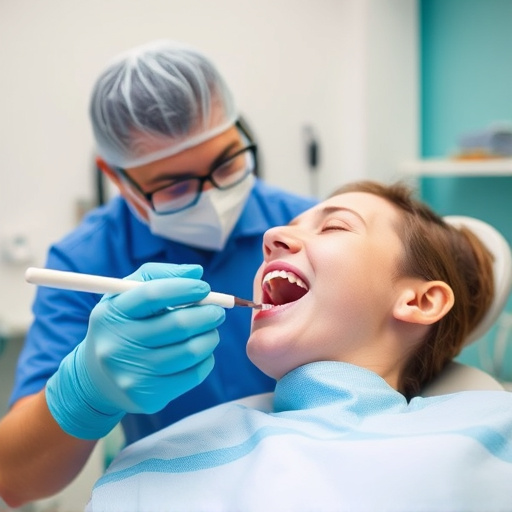
TMJ disorder, affecting the temporomandibular joint that connects the jawbone to the skull, can lead to a host of symptoms including chronic pain, difficulty chewing, and even headaches. This condition often goes undiagnosed due to its varied presentation, impacting not only oral health but also overall quality of life. The discomfort and limitations it imposes can make everyday activities challenging, from eating meals comfortably to finding restful sleep.
Early recognition is key in managing TMJ disorder. Many patients turn to TMJ disorder treatment for relief, which may include a combination of therapies such as physical therapy, medication, or in severe cases, surgery. Regular teeth cleaning and emergency dental care play vital roles in maintaining oral health and addressing any contributing factors to the disorder. By addressing TMJ disorder proactively, individuals can significantly improve their daily life quality, regaining comfort, control, and confidence in their jaw function.
Exploring Non-Surgical Treatment Options

Many individuals suffering from TMJ disorder (TMD) are seeking non-surgical treatment options to alleviate their symptoms and improve daily life quality. This approach is particularly appealing as it offers a less invasive alternative to surgical procedures, which can be costly and time-consuming. General dentistry practices often provide a range of treatments tailored to the specific needs of each patient.
One common non-surgical option involves dental crowns. These are custom-made caps placed over teeth to restore their shape, size, and strength. In the context of TMD, crowns can be strategically positioned to realign the jaw joint, reducing stress and pressure that contribute to symptoms. Additionally, cosmetic dentistry techniques, such as bite splint therapy, are used to relax the jaw muscles during sleep, providing significant relief for many patients. These treatments not only address the physical aspects of TMJ disorder but also enhance overall oral health and aesthetics.
Enhancing Quality of Life Through Effective Care
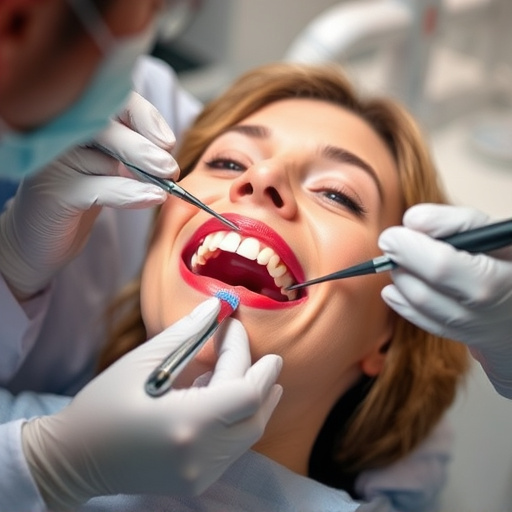
Effective TMJ disorder treatment can significantly enhance one’s quality of life. Beyond alleviating the physical symptoms like jaw pain and popping sounds, successful therapy restores proper bite alignment and chewing function. This leads to improved sleep patterns, reduced headaches, and better overall oral health.
When left untreated, TMJ disorder can impact daily activities such as eating, speaking, and even emotional well-being. Restorative dentistry techniques, including tooth repair and careful teeth cleaning, play a crucial role in comprehensive TMJ care. By addressing underlying dental issues related to the jaw joint, these treatments offer lasting solutions that promote a higher level of comfort, confidence, and overall life satisfaction.
TMJ disorder treatment plays a pivotal role in enhancing daily life quality. By understanding the condition and exploring non-surgical options, individuals can find effective care that improves their overall well-being. Effective management of TMJ disorder not only alleviates pain and discomfort but also allows folks to regain control over their lives, fostering a newfound sense of comfort and confidence in their daily activities.





